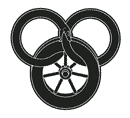You think you’re all that, Wheel of Time Reread Redux, but you’re… well, no, you kinda are in my book. Mwah!
Today’s Redux post will cover Chapters 50 and 51 of The Dragon Reborn, originally reread in this post.
All original posts are listed in The Wheel of Time Reread Index here, and all Redux posts will also be archived there as well. (The Wheel of Time Master Index, as always, is here, which has links to news, reviews, interviews, and all manner of information about the Wheel of Time in general on Tor.com.)
The Wheel of Time Reread is also available as an e-book series! Yay!
All Reread Redux posts will contain spoilers for the entire Wheel of Time series, so if you haven’t read, read at your own risk.
And now, the post!
Chapter 50: The Hammer
 Redux Commentary
Redux Commentary
So back when I was originally doing this Reread, I made the mistake of assuming that most people who were reading had already read the WOTFAQ, which in retrospect may have been a weensy bit arrogant and/or ignorant of me. But regardless of why I made it, that assumption is why I didn’t bother to mention a lot of things in the earlier books that I felt had already been adequately covered in the FAQ, even if they were pretty interesting.
Like The Alleged Big Metallurgy Mistake in this chapter, for instance:
As soon as [Perrin] had made the hot-cut, he tossed the glowing metal into the salted quenching barrel. Unsalted gave a harder quench, for the hardest metal, while the oil gave the softest, for good knives.
According to WOTFAQ contributors Jon Palmer and Don Harlow, this is: “Wrong. In order of resultant hardness, it goes Oil, Water, Salt Water, with Salt water yielding the hardest blade because of best heat transfer and higher boiling point than plain water. Oil is softer because of slower heat transfer but is commonly used for cutlery because it causes less thermal stresses and a tougher blade. (won’t break from shock) Salt water quench is definitely a harder quench than fresh water. It’s due to the higher boiling point of salt water precluding the formation of an insulating vapor layer over the steel which slows heat transfer from the steel to the water.”
I am not a metallurgist, nor a blacksmith, nor do I play either one on the Internet (AS FAR AS YOU KNOW), but even I know that salt water does indeed have a higher boiling point than fresh water. Whether that fact confirms that Jordan made a mistake here, though, I have no idea. However, no one has ever contested this assertion in the FAQ to my knowledge, so I have to assume that, fandom being an ornery and quick-to-jump-on-mistakes-about-mistakes bunch, the lack of outcry over it indicates that Messieurs Palmer and Harlow were in fact correct, and Jordan slipped up here. Whoops.
I also don’t know whether this error was corrected in later editions of TDR, as some gaffes the fans so helpfully pointed out were. I don’t honestly think it makes much difference on a grand scale whether it was corrected or not, but I remember this tidbit fondly nevertheless. Mainly because I learned more about smithing from the discussion about this gaffe than I ever would have otherwise, probably, and I have a certain gleeful appreciation of information acquired by arcane or bizarre methods. It’s just so much more fun to learn things that way.
“Information acquired by arcane or bizarre methods” is a phrase which, incidentally, can apply to a nearly worrying amount of knowledge I consider essential to my overall education, but which I only acquired because I spent an inordinate amount of time on the Internet arguing with random people about a certain epic fantasy series. I mean, don’t get me wrong, I loved it (still do love it), but I can’t help feeling that maybe I should have gotten a lot more of said knowledge from the education I actually paid for, you know?
Oh well.
Other than that, I think my original commentary covers this chapter pretty well. The only other thing worth noting there is this bit of my thoughts:
It’s also a very smooth segue into what will become Perrin’s central dilemma for the series: the axe vs. the hammer, or war/destruction/brutality versus peace/construction/beauty. I’ve never been sure, personally, whether the fact that the hammer is just as capable of being used as a weapon as the axe (and that Perrin does actually use it as such, more than once) undermines this dichotomy or not.
And now that the series is over, I… still don’t know the answer to that question, really. Especially when you consider that technically the axe is an implement with dual functionality as well. Obviously it makes a fearsome weapon, but you know, I imagine it’s rather difficult to stoke a forge fire (for example) if you don’t have an axe to chop the wood for it.
So, the comparison is maybe a little shaky on that basis. But, you know, it’s all symbolic and shit, okay, and probably I shouldn’t overthink it to that extent. Because even if you can quibble with it around the pedantic edges, the central dilemma itself is still relevant. Which is something I admit even while acknowledging how incredibly impatient I got with Perrin’s struggles over that dichotomy at several points.
Because, hey. That hammer-forging scene in TOM? Made it all okay, with the sheer power of its awesomeness. Yep.
Chapter 51: Bait for the Net
 Redux Commentary
Redux Commentary
Hahaha oh wow. So, in the original commentary I complained about not understanding how the whole 13 Fades + 13 Darkfriend channelers = Turn You EEEEvil thing worked (which, to be fair, had not been really explained at the time in the books), and laughed at the idea that it was like The Attitudinator, and oh yeah I had totally been on a giant Kim Possible kick at the time, hadn’t I. (That was actually a really cute and clever show, I should rewatch that sometime.)
But of course, it turns out the joke’s on me, as it transpires that the 13×13 trick is more or less exactly like the effects of The Attitudinator. And in fact I should have known that even back then, as one of my intrepid commenters on that post pointed out: “Jordan explained way back in one of his Q&A’s that it involved the worst aspects of each individual being targeted and magnified until they utterly dominated the personality, and in effect, the individual would WANT to serve the Shadow of their own ‘free will.’”
Commenter Litg also opined that the notion was one of Jordan’s creepier concepts. And, having now gotten to see it in action in TOM/AMOL, I have absolutely no quarrel with that assessment. Eeeeeeeeeek
Ugh, so disturbing. Once again, have absolutely no criticisms to offer re: Nynaeve and Elayne screaming their heads off at the idea. Or Egwene fighting until they physically knocked her out, either.
Liandrin laughed. Tangling a hand in Sandar’s black hair, she wrenched his head back. He stared up at her with the eyes of a faithful hound—or of a cur expecting a kick. “Do not be too hard on this man.” She even made “man” sound like “dog.” “He had to be… persuaded… to serve. But I am very good at persuading, no?” She laughed again.
Sandar turned a confused stare on Nynaeve. “I had to do it, Mistress Maryim. I… had to.” Liandrin twisted his hair, and his eyes went back to her, the anxious hound’s once more.
Light! Nynaeve thought. What did they do to him? What are they going to do to us?
And this bit was, honestly, only slightly less disturbing than the 13×13 thing, in retrospect. “Slightly less” in that at least Liandrin’s half-assed version of Compulsion wasn’t permanent. Hell, even full-bore, non-half-assed Compulsion’s one bright side is that it can be shaken off eventually, as Morgase proved. Not without damage and trauma, of course, but it is possible. Whereas the 13×13 trick is, as far as I recall from what we’re told and shown, irreversible. That is some serious I Have No Mouth And I Must Scream nightmare fuel shit, right there, if you really consider it.
I also must say that I gave Nynaeve kudos, initially, for immediately understanding that Juilin’s betrayal of them was not actually his fault. Of course, it would have been nice had she or Elayne or Egwene actually conveyed that sentiment to Juilin himself, later. So in retrospect my approval for Nynaeve was soured a little bit.
That said, I did still totally love how she did her level best to beat the shit out of Liandrin and Rianna before they subdued her. And it was definitely telling that neither Black sister even thought to restrain Nynaeve bodily once they had her shielded from the Power, like it never even occurred to either of them that a channeler might also be able to resist physically as well as magically. I’m completely positive that there is a proverb or quotation somewhere that sums up the danger of such blinkered tactical thinking, but I can’t think of it. It’s probably Sun Tzu, the big showoff.
If you know which quote it is, though, let me know! But in the meantime, this is where we stop. Come back next week for what should be the penultimate post on TDR. Cheers!












